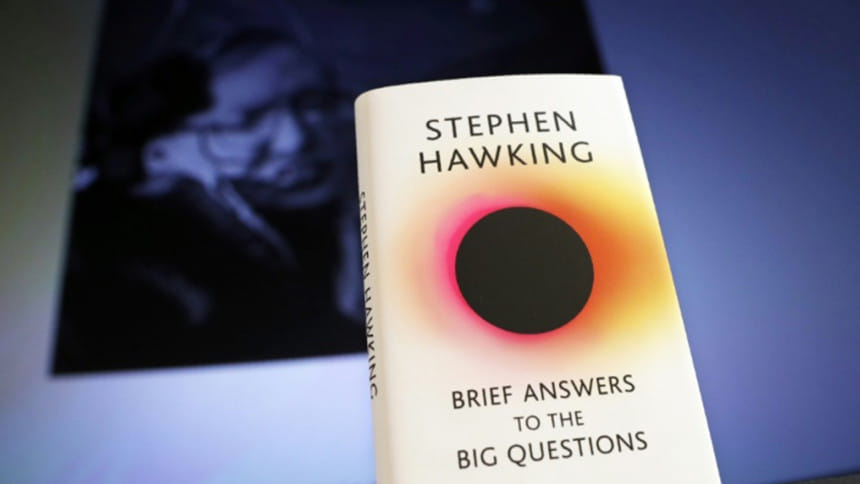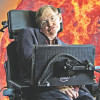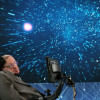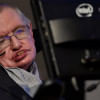Hawking's final book offers brief answers to big questions

Stephen Hawking's final work, which tackles issues from the existence of God to the potential for time travel, was launched yesterday by his children, who helped complete the book after the British astrophysics giant's death.
Hawking was forever being asked the same things and started work on "Brief Answers to the Big Questions" last year -- but did not finish it before he died in March, aged 76.
It has been completed by the theoretical physicist's family and academic colleagues, with material drawn from his vast personal archive.
"He was regularly asked a set of questions," his daughter Lucy Hawking said at the Science Museum in London.
The book was an attempt to "bring together the most definitive, clearest, most authentic answers that he gave.
"We all just wish he has here to see it."
Hawking, who was wheelchair bound due to motor neurone disease, dedicated his life's work to unravelling the mysteries of the universe.
The cosmologist was propelled to stardom by his 1988 book "A Brief History of Time", an unlikely worldwide bestseller.
It won over fans from far beyond the rarefied world of astrophysics and prompted people into asking the mastermind his thoughts on broader topics, answered in his final work.
The big questions
The 10 questions Hawking tackles are:
-- Is there a God?
-- How did it all begin?
-- What is inside a black hole?
-- Can we predict the future?
-- Is time travel possible?
-- Will we survive on Earth?
-- Is there other intelligent life in the universe?
-- Should we colonise space?
-- Will artificial intelligence outsmart us?
-- How do we shape the future?
Multiple challenges
In his book, Hawking says humans have no option but to leave Earth, risking being "annihilated" if they do not.
He says computers will overtake humans in intelligence during the next 100 years, but "we will need to ensure that the computers have goals aligned with ours".
Hawking says the human race had to improve its mental and physical qualities, but a genetically-modified race of superhumans, say with greater memory and disease resistance, would imperil the others.
He says that by the time people realise what is happening with climate change, it may be too late.
Hawking says the simplest explanation is that God does not exist and there is no reliable evidence for an afterlife, though people could live on through their influence and genes.
He says that in the next 50 years, we will come to understand how life began and possibly discover whether life exists elsewhere in the universe.
"He was deeply worried that at a time when the challenges are global, we were becoming increasingly local in our thinking," Lucy Hawking said.
"It's a call to unity, to humanity, to bring ourselves back together and really face up to the challenges in front of us."
In his final academic paper, Hawking shed new light on black holes and the information paradox, with new work calculating the entropy of black holes.
Turned into an animation narrated by Hawking's artificial voice, it was shown at the book launch.
"It was very emotional. I turned away because I had tears forming," Lucy Hawking told AFP on hearing her father's voice again.
"It feels sometimes like he's still here because we talk about him and hear his voice -- and then we have the reminder that he's left us."

 For all latest news, follow The Daily Star's Google News channel.
For all latest news, follow The Daily Star's Google News channel. 







Comments